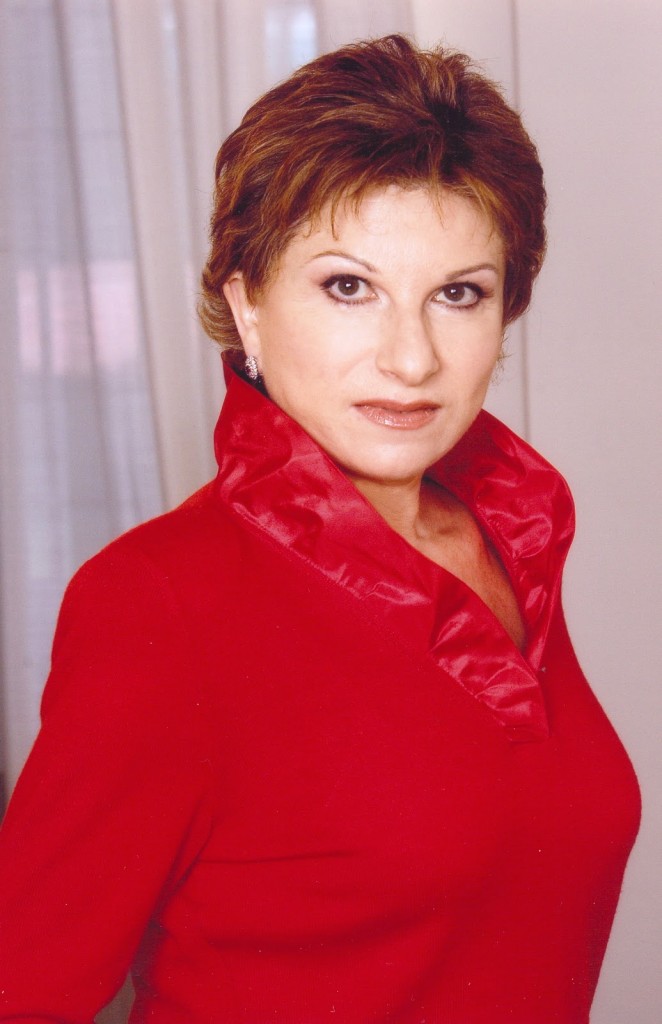After a long absence, Mariella Devia enjoys a major triumph with OONY’s “Roberto Devereux”

Mariella Devia performed the role of Queen Elizabeth in Donizetti’s “Roberto Devereux” with the Opera Orchestra of New York Thursday night at Carnegie Hall.
A very savvy “industry” crowd—singers, managers, voice teachers and journalists—converged to fill Carnegie Hall Thursday night for an event that hadn’t received much advance publicity: Opera Orchestra of New York’s only major concert of the season, Roberto Devereux, under founder Eve Queler.
Queler has been presenting concert opera—and important singers new to New York—for four decades now, and this fine concert may actually have been her swansong—and even OONY’s. In the event, she programmed one of her audience’s favorite composers—Gaetano Donizetti—and invited back for a welcome (and lavishly welcomed) return to America stages of one of the singers most associated with her company: Italian soprano Mariella Devia.
Devia, not a conventional prima donna, makes no bones about her age (she’s 66). Though something of a national icon in Italy for her command of the bel canto style and enduring technical mastery (her stage debut was in 1973), she has never been a major headliner in the United States, though she sang many beautiful performances at the Met (1979-1994) as Verdi’s Gilda, Donizetti’s Lucia and Mozart’s Constanze in particular, also appearing in Dallas and Chicago. Where Devia was a star in America was precisely at OONY, in five astounding performances of French and Italian coloratura roles between 1979 and 2000 under Queler’s baton. The concert format seemed to unlock some of her restraint, though—as her performance in Roberto Devereux showed—she remains firmly dedicated to the purity of line and technical finish that have made her nearly unique among today’s sopranos.
From the start it was clear that most of Devia’s resources of tone and breath are astonishingly well preserved. The sound is not massive, but cushioned, and rises with remarkable ease and precise intonation into the upper register. Trills and embellishments pose no problems; words are firmly anchored on long, flowing, well-etched lines. Playing a character exactly her age (Queen Elizabeth in 1598) she stressed dignity and the regret at duty and age keeping personal happiness a fleeting memory. Some fans want to see this part hammed up à la Bette Davis; Devia’s restraint and honesty—coupled with jaw-dropping technical control and remarkably fresh tone in key passages— seemed a valid, brave strategy to me. Plus, she crowned the evening with a superb, long-held high D.
In the opera’s title role, the dashing, foolishly impulsive military hero Earl of Essex, Stephen Costello entered the stage—that is, his former royal lover’s Great Hall—like a sheepish high school freshman late for homeroom. Inexpressive embarrassment remained his affect virtually throughout; he made no visible or audible contact with any of his colleagues, even while singing duets with them. Donizetti’s writing suits his pleasant if somewhat monochrome tenor; he articulates words well even if he doesn’t do much shading. The most enjoyable part of this gifted but frustrating tenor’s performance was, tellingly, when he was alone onstage: the haunting proto-Verdian cavatina “Come uno spirto angelico”. Costello phrased it much like the great John Alexander in the 1975 Beverly Sills video–and what better vocal model for this role?–though Alexander at 52 had more consistently secure high notes than Costello at 33.
Géraldine Chauvet, whom Queler also granted a U.S. debut a few years back, was decent and pleasant-sounding (except for some lunged-at high notes) but finally unmemorable as Sara, the Queen’s rival. The mezzo needs to sing crisper consonants and use Italian words to shape the line. One would think that singing next to Devia, a mistress of phrasing, might suggest that to a younger artist, just as baritone David Pershall–singing Sara’s husband Nottingham–had he but listened to Devia in their duet, might have learned something about the importance of vital rhythm in bel canto singing. A nice-looking young guy with a basically attractive voice and punched-out high notes will get a sympathetic hearing from an OONY crowd, but Pershall was punching maybe two leagues above his vocal weight class and sounded like he had nothing in reserve. Donizetti’s Belcore and Malatesta should be more his speed.
John Kapusta, as the vengeful Cecil, showed his Spieltenor bonafides by entering and leaving the stage in character and deploying incisive diction. In the small role of Walter Raleigh, imposing Serbian bass Sava Vemic—entering the Met’s Lindemann Young Artists Program—showed an enormous Nicolai Ghiaurov-like voice of considerable impact and promise.
Donizetti uses his chorus partially conventionally, for introducing solo scenes; but in this opera, like the other court-set Tudor dramas, they also play an important role in imposing a kind of specularity and surveillance on the major characters.. Italo Marchini’s New York Choral Ensemble entered into the evening spiritedly, and their ensemble was quite good. Queler was her unflappable self, despite occasional brass strayings, and did a good job introducing the opera’s wonderfully intimate last two scenes. The crowd showed gratitude for Queler’s tireless industry; but the thunderous shouts of “Brava” went to Mariella Devia, for a truly remarkable performance.






Posted Jun 06, 2014 at 3:13 pm by Roz Forman
This performance was one of the most memorable I have ever attended. Bravo!
Posted Jun 09, 2014 at 10:28 pm by Svjetlana Bukvich
In the hands of Mariella Devia, the art of opera thrilled and transcended. Bravo, indeed!